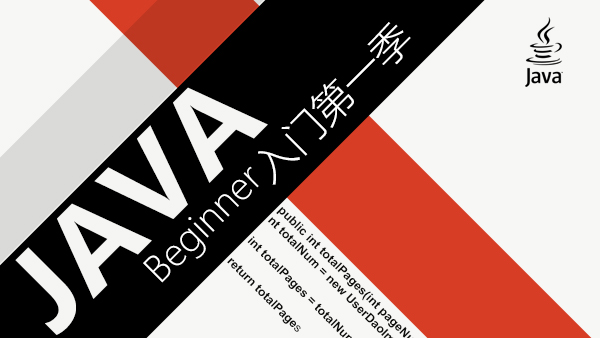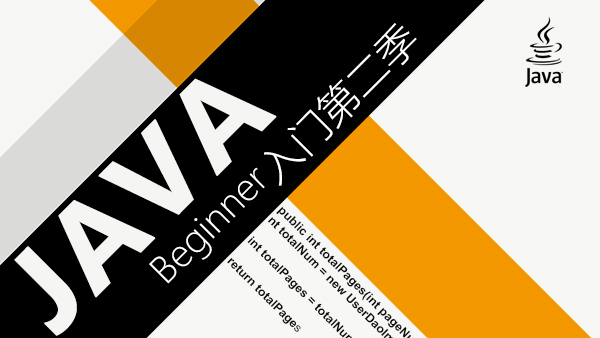本文介绍了如何使用Java技术构建一个完整的医疗系统,涵盖数据库连接、用户身份验证、病历管理系统实现等内容。文章详细讲解了Java在医疗系统开发中的应用,并提供了多个示例代码和实战项目演示,帮助读者深入了解如何利用Java医疗系统资料开发高效的医疗管理系统。
Java基础知识入门什么是Java
Java是由Sun Microsystems(现为Oracle公司的一部分)在1995年推出的广泛使用的编程语言。Java是一种面向对象的编程语言,支持类和对象的概念,允许开发者创建可重用的代码组件。Java具有跨平台性,可以在任何安装了Java虚拟机(JVM)的平台上运行,从而降低了不同操作系统之间的移植成本。
Java的优势
- 跨平台性:Java程序编译成字节码,可以在任何安装了JVM的平台上运行。
- 安全性:Java提供了多层次的安全模型,能够防止恶意代码和黑客攻击。
- 面向对象:Java支持面向对象编程,使代码易于维护和扩展。
- 丰富的库:Java提供了广泛的内置库,包括网络、文件处理、数据库等。
- 稳定和成熟:Java有庞大的社区支持和长期的发展历史,保证了稳定性和成熟性。
Java开发环境搭建
下载Java开发工具包(JDK)
- 访问Oracle官方网站下载最新版本的JDK。
- 安装JDK并设置环境变量。
下载集成开发环境(IDE)
推荐使用IntelliJ IDEA或Eclipse作为开发环境。
配置环境变量
- 设置
JAVA_HOME环境变量指向JDK安装路径。 - 将
%JAVA_HOME%\bin路径添加到系统的PATH环境变量中。
验证安装
通过命令行运行java -version命令来验证JDK是否正确安装。
java -version示例代码
编译并运行一个简单的“Hello World”程序。
创建文件HelloWorld.java:
public class HelloWorld {
public static void main(String[] args) {
System.out.println("Hello, World!");
}
}编译Java程序:
javac HelloWorld.java运行程序:
java HelloWorld医疗系统的定义
医疗系统是指用来支持医疗保健服务的软件系统,它可以帮助医疗机构进行病人的信息管理、药物管理、预约管理等。医疗系统可以是一个简单的数据库驱动的应用程序,也可以是一个复杂的电子医疗记录(EMR)系统。
医疗系统的功能模块
-
病人信息管理
- 病人基本信息录入
.
.
.
- 病人基本信息录入
- 财务系统
- 费用管理
- 收费结算
病人信息管理模块示例
public class Patient {
private String name;
private String id;
private int age;
public Patient(String name, String id, int age) {
this.name = name;
this.id = id;
this.age = age;
}
public String getName() {
return name;
}
public String getId() {
return id;
}
public int getAge() {
return age;
}
@Override
public String toString() {
return "Patient{" +
"name='" + name + '\'' +
", id='" + id + '\'' +
", age=" + age +
'}';
}
}
public class PatientManager {
public static void main(String[] args) {
Patient patient1 = new Patient("张三", "123456", 25);
Patient patient2 = new Patient("李四", "789101", 30);
System.out.println(patient1);
System.out.println(patient2);
}
}Java在医疗系统的角色
Java在医疗系统开发中扮演着重要的角色,可以用来实现病历管理、病人预约、药品管理等功能模块。Java的跨平台性使得开发的系统可以在多种操作系统上运行,这有助于系统的部署和维护。
Java技术如何支持医疗系统开发
- Java EE(Enterprise Edition):提供了构建企业级应用程序的技术和规范,适用于需要高并发、高可用性的医疗系统。
- Java SE(Standard Edition):提供了构建桌面和客户端应用程序的基础,适用于简单的医疗管理系统。
- JavaFx:支持开发桌面应用程序,可以用来构建医疗系统的用户界面。
示例代码
创建一个简单的病人信息管理模块:
public class Patient {
private String name;
private String id;
private int age;
public Patient(String name, String id, int age) {
this.name = name;
this.id = id;
this.age = age;
}
public String getName() {
return name;
}
public String getId() {
return id;
}
public int getAge() {
return age;
}
@Override
public String toString() {
return "Patient{" +
"name='" + name + '\'' +
", id='" + id + '\'' +
", age=" + age +
'}';
}
}
public class PatientManager {
public static void main(String[] args) {
Patient patient1 = new Patient("张三", "123456", 25);
Patient patient2 = new Patient("李四", "789101", 30);
System.out.println(patient1);
System.out.println(patient2);
}
}数据库连接与操作
在医疗系统中,数据库是核心部分,需要将病人的信息、病历、药品库存等信息存储在数据库中。Java提供了多种数据库连接方式,包括JDBC(Java Database Connectivity)和ORM框架(如Hibernate、MyBatis)。
JDBC数据库连接示例
import java.sql.Connection;
import java.sql.DriverManager;
import java.sql.ResultSet;
import java.sql.Statement;
public class JdbcExample {
public static void main(String[] args) {
String url = "jdbc:mysql://localhost:3306/mydatabase";
String username = "root";
String password = "password";
try {
Connection conn = DriverManager.getConnection(url, username, password);
Statement stmt = conn.createStatement();
String sql = "SELECT * FROM patients";
ResultSet rs = stmt.executeQuery(sql);
while (rs.next()) {
System.out.println(rs.getString("name") + ", " + rs.getString("id") + ", " + rs.getInt("age"));
}
rs.close();
stmt.close();
conn.close();
} catch (Exception e) {
e.printStackTrace();
}
}
}用户身份验证与授权
在医疗系统中,用户身份验证和授权是非常重要的安全措施。可以使用Spring Security或Shiro等安全框架来实现身份验证和授权。
使用Spring Security进行用户身份验证
import org.springframework.security.crypto.bcrypt.BCryptPasswordEncoder;
import org.springframework.security.crypto.password.PasswordEncoder;
public class SecurityConfig {
public static void main(String[] args) {
PasswordEncoder encoder = new BCryptPasswordEncoder();
String encodedPassword = encoder.encode("password");
System.out.println(encodedPassword);
}
}使用Shiro进行用户身份验证
import org.apache.shiro.SecurityUtils;
import org.apache.shiro.authc.UsernamePasswordToken;
import org.apache.shiro.config.IniSecurityManagerFactory;
import org.apache.shiro.subject.Subject;
import org.apache.shiro.util.Factory;
public class ShiroExample {
public static void main(String[] args) {
Factory<org.apache.shiro.mgt.SecurityManager> factory = new IniSecurityManagerFactory("classpath:shiro.ini");
org.apache.shiro.mgt.SecurityManager securityManager = factory.getInstance();
SecurityUtils.setSecurityManager(securityManager);
Subject currentUser = SecurityUtils.getSubject();
UsernamePasswordToken token = new UsernamePasswordToken("username", "password");
currentUser.login(token);
System.out.println("身份验证成功:" + currentUser.isAuthenticated());
currentUser.logout();
}
}病历管理系统的简单实现
病历管理系统是医疗系统的核心模块之一,可以用来记录和管理病人的病历信息。可以通过Java的文件操作或数据库操作来实现。
使用文件操作管理病历
import java.io.BufferedWriter;
import java.io.FileWriter;
import java.io.IOException;
public class MedicalRecordManager {
public static void main(String[] args) {
String filePath = "medical_records.txt";
try (BufferedWriter writer = new BufferedWriter(new FileWriter(filePath, true))) {
writer.write("张三, 123456, 感冒, 2023-01-01");
writer.newLine();
writer.write("李四, 789101, 发烧, 2023-01-02");
} catch (IOException e) {
e.printStackTrace();
}
}
}使用数据库操作管理病历
import java.sql.Connection;
import java.sql.DriverManager;
import java.sql.PreparedStatement;
import java.sql.SQLException;
public class MedicalRecordManager {
public static void main(String[] args) {
String url = "jdbc:mysql://localhost:3306/mydatabase";
String username = "root";
String password = "password";
try (Connection conn = DriverManager.getConnection(url, username, password)) {
String sql = "INSERT INTO medical_records (name, id, diagnosis, date) VALUES (?, ?, ?, ?)";
PreparedStatement pstmt = conn.prepareStatement(sql);
pstmt.setString(1, "张三");
pstmt.setString(2, "123456");
pstmt.setString(3, "感冒");
pstmt.setString(4, "2023-01-01");
pstmt.executeUpdate();
pstmt.setString(1, "李四");
pstmt.setString(2, "789101");
pstmt.setString(3, "发烧");
pstmt.setString(4, "2023-01-02");
pstmt.executeUpdate();
} catch (SQLException e) {
e.printStackTrace();
}
}
}实现电子病历浏览功能
电子病历浏览功能是医疗系统的一个重要部分,可以使用Java的Web开发框架(如Spring Boot、Vaadin等)来实现。
使用Spring Boot实现电子病历浏览
import org.springframework.boot.SpringApplication;
import org.springframework.boot.autoconfigure.SpringBootApplication;
import org.springframework.web.bind.annotation.GetMapping;
import org.springframework.web.bind.annotation.RequestParam;
import org.springframework.web.bind.annotation.RestController;
@SpringBootApplication
public class MedicalRecordApp {
public static void main(String[] args) {
SpringApplication.run(MedicalRecordApp.class, args);
}
@RestController
public class MedicalRecordController {
@GetMapping("/records")
public String getMedicalRecord(@RequestParam String id) {
// 这里可以调用数据库查询病历信息
return "病历信息:" + id;
}
}
}数据安全与隐私保护
在医疗系统中,数据安全和隐私保护至关重要。可以使用加密技术、访问控制和日志记录等措施来保护数据。
使用加密技术保护数据
import javax.crypto.Cipher;
import javax.crypto.spec.SecretKeySpec;
import java.security.Key;
import java.util.Base64;
public class EncryptionExample {
public static void main(String[] args) {
String keyString = "1234567890123456"; // 16 bytes
SecretKeySpec keySpec = new SecretKeySpec(keyString.getBytes(), "AES");
String plaintext = "敏感数据";
try {
Cipher cipher = Cipher.getInstance("AES/ECB/PKCS5Padding");
cipher.init(Cipher.ENCRYPT_MODE, keySpec);
String encrypted = Base64.getEncoder().encodeToString(cipher.doFinal(plaintext.getBytes()));
System.out.println("加密后:" + encrypted);
cipher.init(Cipher.DECRYPT_MODE, keySpec);
String decrypted = new String(cipher.doFinal(Base64.getDecoder().decode(encrypted)));
System.out.println("解密后:" + decrypted);
} catch (Exception e) {
e.printStackTrace();
}
}
}系统性能优化
在开发医疗系统时,需要考虑系统性能优化,以提高系统的响应速度和稳定性。可以使用缓存、分页查询和异步处理等技术来优化系统性能。
使用缓存技术优化查询
import com.google.common.cache.CacheBuilder;
import java.util.concurrent.TimeUnit;
public class CacheExample {
public static void main(String[] args) {
CacheBuilder<Object, String> cacheBuilder = CacheBuilder.newBuilder()
.maximumSize(100)
.expireAfterWrite(10, TimeUnit.MINUTES);
java.util.concurrent.CacheLoader<Object, String> loader = new java.util.concurrent.CacheLoader<Object, String>() {
public String load(Object key) {
return fetchData(key);
}
};
java.util.concurrent.Cache<Object, String> cache = cacheBuilder.build(loader);
String result = cache.get("patient123");
System.out.println(result);
}
private static String fetchData(Object key) {
// 模拟从数据库获取数据
return "patient data";
}
}简单医疗管理系统设计与实现
简单医疗管理系统可以包括用户管理、病人管理、病历管理等功能模块。可以使用Spring Boot框架来快速开发这样的系统。
使用Spring Boot开发简单医疗管理系统
- 创建Spring Boot项目
- 配置数据库连接
- 创建Entity类
- 创建Repository类
- 创建Service类
- 创建Controller类
// Patient实体类
import javax.persistence.Entity;
import javax.persistence.GeneratedValue;
import javax.persistence.GenerationType;
import javax.persistence.Id;
@Entity
public class Patient {
@Id
@GeneratedValue(strategy = GenerationType.IDENTITY)
private Long id;
private String name;
private String idNumber;
private int age;
// 省略getter和setter方法
}
// PatientRepository接口
import org.springframework.data.jpa.repository.JpaRepository;
public interface PatientRepository extends JpaRepository<Patient, Long> {
}
// PatientService类
import org.springframework.beans.factory.annotation.Autowired;
import org.springframework.stereotype.Service;
import java.util.List;
@Service
public class PatientService {
@Autowired
private PatientRepository patientRepository;
public List<Patient> getAllPatients() {
return patientRepository.findAll();
}
public Patient addPatient(Patient patient) {
return patientRepository.save(patient);
}
public Patient getPatientById(Long id) {
return patientRepository.findById(id).orElse(null);
}
public void deletePatient(Long id) {
patientRepository.deleteById(id);
}
}
// PatientController类
import org.springframework.beans.factory.annotation.Autowired;
import org.springframework.web.bind.annotation.*;
import java.util.List;
@RestController
@RequestMapping("/patients")
public class PatientController {
@Autowired
private PatientService patientService;
@GetMapping
public List<Patient> getAllPatients() {
return patientService.getAllPatients();
}
@PostMapping
public Patient addPatient(@RequestBody Patient patient) {
return patientService.addPatient(patient);
}
@GetMapping("/{id}")
public Patient getPatientById(@PathVariable Long id) {
return patientService.getPatientById(id);
}
@DeleteMapping("/{id}")
public void deletePatient(@PathVariable Long id) {
patientService.deletePatient(id);
}
}使用Java开发一个小型医疗系统
这里展示如何开发一个包括病人管理、预约管理、病历管理的医疗系统。
病人管理模块
import javax.persistence.Entity;
import javax.persistence.GeneratedValue;
import javax.persistence.GenerationType;
import javax.persistence.Id;
@Entity
public class Patient {
@Id
@GeneratedValue(strategy = GenerationType.IDENTITY)
private Long id;
private String name;
private String idNumber;
private int age;
// 省略getter和setter方法
}
// PatientRepository接口
import org.springframework.data.jpa.repository.JpaRepository;
public interface PatientRepository extends JpaRepository<Patient, Long> {
}
// PatientService类
import org.springframework.beans.factory.annotation.Autowired;
import org.springframework.stereotype.Service;
import java.util.List;
@Service
public class PatientService {
@Autowired
private PatientRepository patientRepository;
public List<Patient> getAllPatients() {
return patientRepository.findAll();
}
public Patient addPatient(Patient patient) {
return patientRepository.save(patient);
}
public Patient getPatientById(Long id) {
return patientRepository.findById(id).orElse(null);
}
public void deletePatient(Long id) {
patientRepository.deleteById(id);
}
}
// PatientController类
import org.springframework.beans.factory.annotation.Autowired;
import org.springframework.web.bind.annotation.*;
import java.util.List;
@RestController
@RequestMapping("/patients")
public class PatientController {
@Autowired
private PatientService patientService;
@GetMapping
public List<Patient> getAllPatients() {
return patientService.getAllPatients();
}
@PostMapping
public Patient addPatient(@RequestBody Patient patient) {
return patientService.addPatient(patient);
}
@GetMapping("/{id}")
public Patient getPatientById(@PathVariable Long id) {
return patientService.getPatientById(id);
}
@DeleteMapping("/{id}")
public void deletePatient(@PathVariable Long id) {
patientService.deletePatient(id);
}
}预约管理模块
import javax.persistence.Entity;
import javax.persistence.GeneratedValue;
import javax.persistence.GenerationType;
import javax.persistence.Id;
@Entity
public class Appointment {
@Id
@GeneratedValue(strategy = GenerationType.IDENTITY)
private Long id;
private String patientName;
private String doctorName;
private String date;
private String time;
// 省略getter和setter方法
}
// AppointmentRepository接口
import org.springframework.data.jpa.repository.JpaRepository;
public interface AppointmentRepository extends JpaRepository<Appointment, Long> {
}
// AppointmentService类
import org.springframework.beans.factory.annotation.Autowired;
import org.springframework.stereotype.Service;
import java.util.List;
@Service
public class AppointmentService {
@Autowired
private AppointmentRepository appointmentRepository;
public List<Appointment> getAllAppointments() {
return appointmentRepository.findAll();
}
public Appointment addAppointment(Appointment appointment) {
return appointmentRepository.save(appointment);
}
public Appointment getAppointmentById(Long id) {
return appointmentRepository.findById(id).orElse(null);
}
public void deleteAppointment(Long id) {
appointmentRepository.deleteById(id);
}
}
// AppointmentController类
import org.springframework.beans.factory.annotation.Autowired;
import org.springframework.web.bind.annotation.*;
import java.util.List;
@RestController
@RequestMapping("/appointments")
public class AppointmentController {
@Autowired
private AppointmentService appointmentService;
@GetMapping
public List<Appointment> getAllAppointments() {
return appointmentService.getAllAppointments();
}
@PostMapping
public Appointment addAppointment(@RequestBody Appointment appointment) {
return appointmentService.addAppointment(appointment);
}
@GetMapping("/{id}")
public Appointment getAppointmentById(@PathVariable Long id) {
return appointmentService.getAppointmentById(id);
}
@DeleteMapping("/{id}")
public void deleteAppointment(@PathVariable Long id) {
appointmentService.deleteAppointment(id);
}
}病历管理模块
import javax.persistence.Entity;
import javax.persistence.GeneratedValue;
import javax.persistence.GenerationType;
import javax.persistence.Id;
@Entity
public class MedicalRecord {
@Id
@GeneratedValue(strategy = GenerationType.IDENTITY)
private Long id;
private String patientName;
private String diagnosis;
private String date;
// 省略getter和setter方法
}
// MedicalRecordRepository接口
import org.springframework.data.jpa.repository.JpaRepository;
public interface MedicalRecordRepository extends JpaRepository<MedicalRecord, Long> {
}
// MedicalRecordService类
import org.springframework.beans.factory.annotation.Autowired;
import org.springframework.stereotype.Service;
import java.util.List;
@Service
public class MedicalRecordService {
@Autowired
private MedicalRecordRepository medicalRecordRepository;
public List<MedicalRecord> getAllMedicalRecords() {
return medicalRecordRepository.findAll();
}
public MedicalRecord addMedicalRecord(MedicalRecord medicalRecord) {
return medicalRecordRepository.save(medicalRecord);
}
public MedicalRecord getMedicalRecordById(Long id) {
return medicalRecordRepository.findById(id).orElse(null);
}
public void deleteMedicalRecord(Long id) {
medicalRecordRepository.deleteById(id);
}
}
// MedicalRecordController类
import org.springframework.beans.factory.annotation.Autowired;
import org.springframework.web.bind.annotation.*;
import java.util.List;
@RestController
@RequestMapping("/medicalrecords")
public class MedicalRecordController {
@Autowired
private MedicalRecordService medicalRecordService;
@GetMapping
public List<MedicalRecord> getAllMedicalRecords() {
return medicalRecordService.getAllMedicalRecords();
}
@PostMapping
public MedicalRecord addMedicalRecord(@RequestBody MedicalRecord medicalRecord) {
return medicalRecordService.addMedicalRecord(medicalRecord);
}
@GetMapping("/{id}")
public MedicalRecord getMedicalRecordById(@PathVariable Long id) {
return medicalRecordService.getMedicalRecordById(id);
}
@DeleteMapping("/{id}")
public void deleteMedicalRecord(@PathVariable Long id) {
medicalRecordService.deleteMedicalRecord(id);
}
}通过以上步骤,您可以创建一个包括病人管理、预约管理和病历管理的小型医疗系统。通过使用Spring Boot框架,您可以快速开发和部署系统,并通过上述提供的代码示例快速实现所需功能。

 随时随地看视频
随时随地看视频




